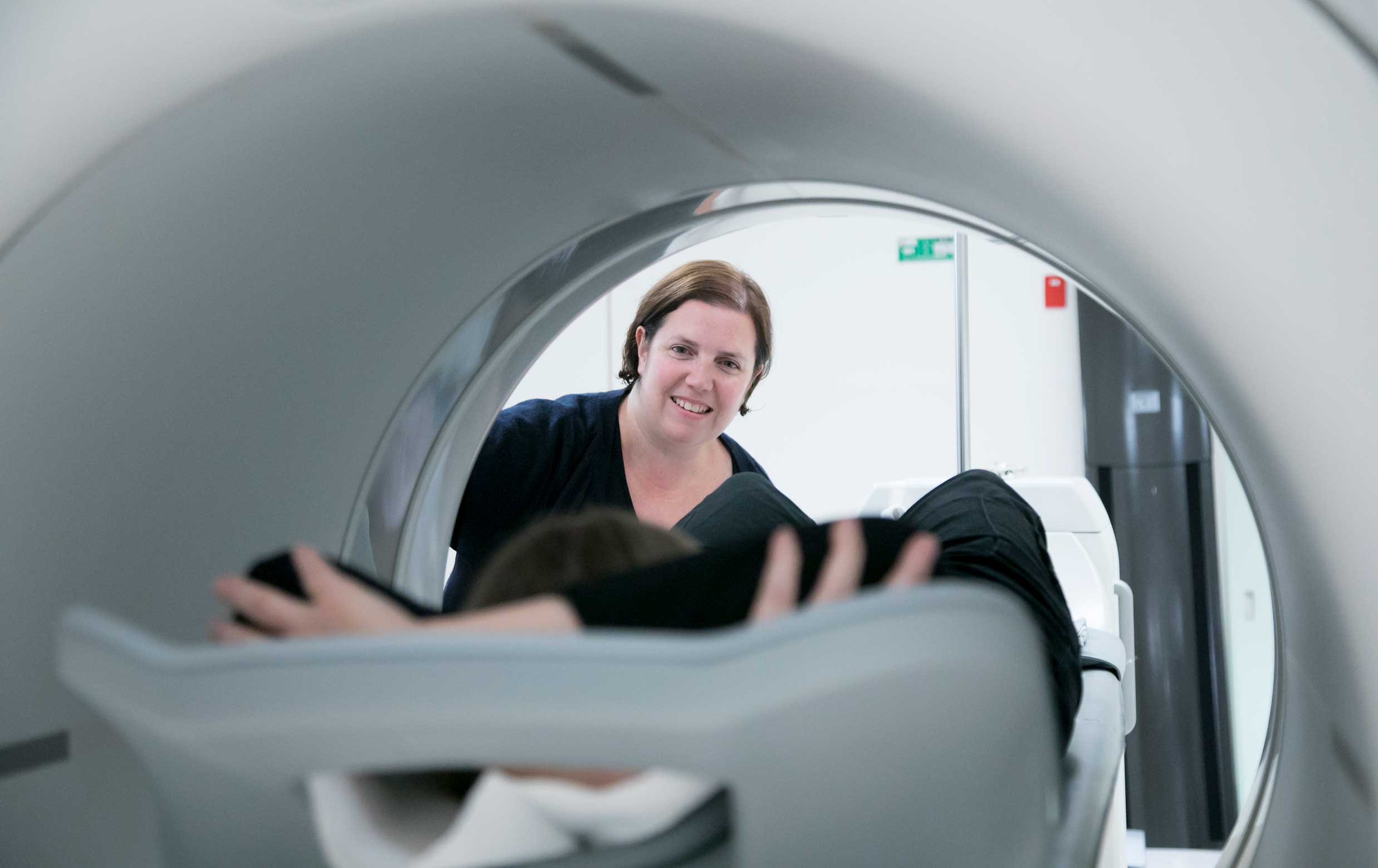Positron Emission Tomography
What is PET?
PET stands for “Positron Emission Tomography”. It is a nuclear medicine imaging test in which a small amount of radioactive tracer is injected into the body. It is used to diagnose a variety of diseases or conditions, including many types of cancer, infection, some inflammatory disorders, brain disorders and heart disease. Radiopharmaceuticals used in PET have very short half-lives, so the radiation leaves the body quickly.
PET scanners are combined with computed tomography (CT) scanners, called PET/CT scanners. CT imaging uses X-ray equipment to create detailed images of slices of the inside of your body. The PET/CT combination allows any tracer uptake on the PET scan to be precisely located within the body using the CT images, allowing for more accurate localisation. The PET/CT scanner looks very similar to a CT scanner, a large ring or donut shape where the bed moves through the centre of the ring. Before the start of the test, please inform the staff if you are pregnant or breastfeeding, or markedly claustrophobic.
18F-FDG PET
The radiopharmaceutical most commonly used in PET scanning is 18F-FDG. This is a simple sugar (like glucose) “FluoroDeoxyGlucose” attached to the radioactive compound 18Fluorine. The tracer is injected into the bloodstream and accumulates in the body in areas of increased metabolism. The radiopharmaceutical gives off gamma rays which are detected by the PET scanner, creating detailed images showing how tissue and organs are working. This radiopharmaceutical is commonly used for cancer imaging, as the cancer cells need sugar to grow, however it is also useful for imaging inflammatory or infective processes, and brain metabolism.
Due to the glucose nature of the radiopharmaceutical, you will need to fast for 4-6 hours prior to attending for this scan. If you are diabetic, please advise the department prior to attending as we will need to discuss your diabetic medication with you regarding any need to change your dosage on the day of the scan. It is preferred for you to attend well-hydrated for the appointment, plain water is allowed during the fasting period and your bladder can be emptied as frequently as needed.
Occasionally other medications may be given as part of the PET scan, e.g. diuretic or insulin. Any possible side effects will be discussed with you at the time. If light sedation is required due to severe claustrophobia, you will need someone to accompany you home and will not be able to drive yourself. An 18F-FDG PET scan will take approximately 2-3 hours for the entire procedure, with the scan lasting from 10-40 minutes, depending on the reason you are having the scan.
Gallium-68 PSMA
This radiopharmaceutical is used for staging or restaging prostate cancer.
There is no need to fast for this scan; however it is preferred for you to be well-hydrated.
A PSMA PET scan will take approximately 2-2.5 hours for the entire procedure, with the scan lasting from 20-30 minutes.
Occasionally other medications may be given as part of the PET scan, e.g. diuretic. Any possible side effects will be discussed with you at the time. If sedation is required due to severe claustrophobia, you will need someone to accompany you home and will not be able to drive yourself.
Gallium-68 Dotatate
This radiopharmaceutical is used for staging or restaging neuroendocrine or carcinoid tumours and for assisting in selecting the most appropriate treatment.
There is no need to fast for this scan; however it is preferred for you to be well-hydrated.
A DOTATATE PET scan will take approximately 2-2.5 hours for the entire procedure, with the scan lasting from 20-30 minutes.
If sedation is required due to severe claustrophobia, you will need someone to accompany you home and will not be able to drive yourself.

